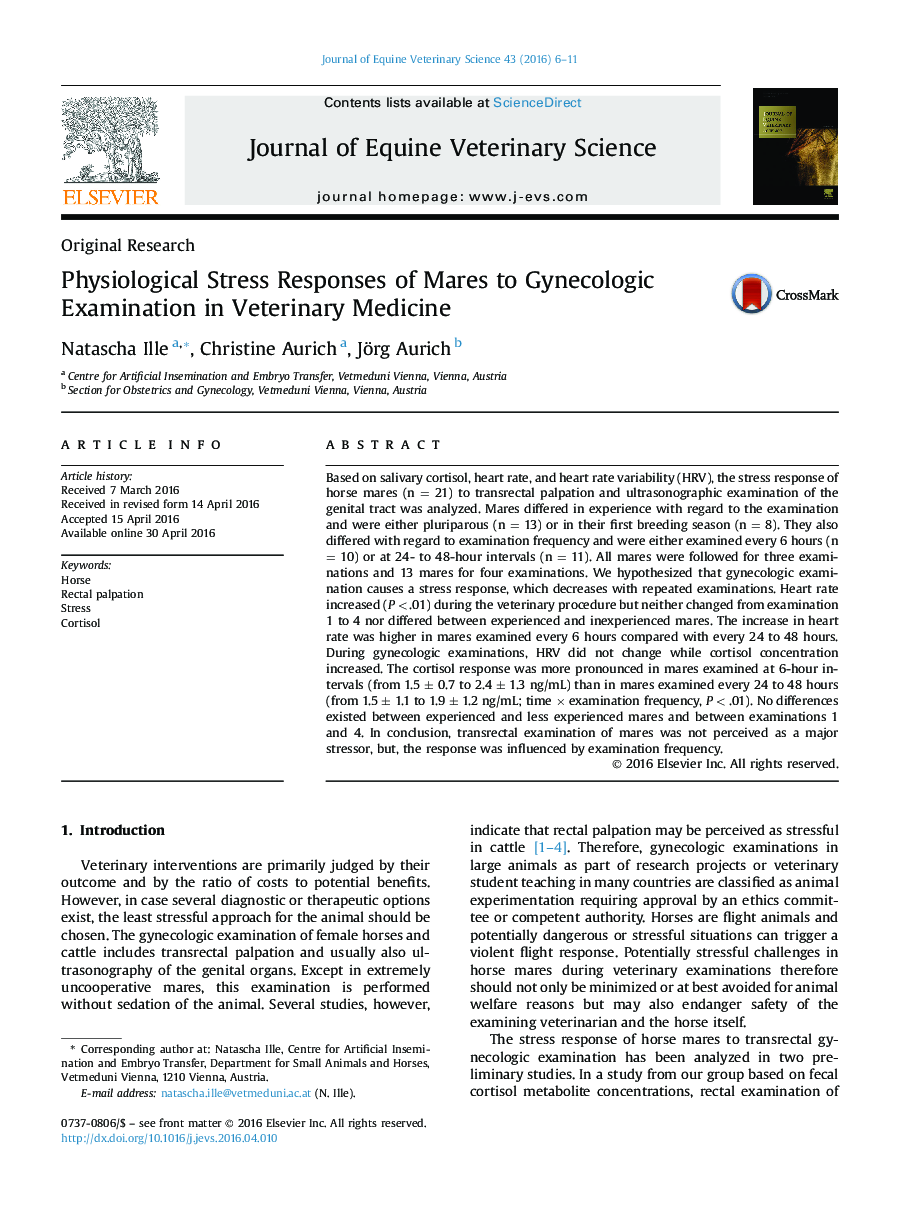| کد مقاله | کد نشریه | سال انتشار | مقاله انگلیسی | نسخه تمام متن |
|---|---|---|---|---|
| 2394518 | 1551557 | 2016 | 6 صفحه PDF | دانلود رایگان |
• The stress response of horse mares to gynecologic examination was analyzed.
• Heart rate increased slightly in response to gynecologic examination.
• Cortisol release increased consistently in response to gynecologic examinations.
• Transrectal gynecologic examination was no major stressor for mares.
• The stress response increased with repeated examinations on the same day.
Based on salivary cortisol, heart rate, and heart rate variability (HRV), the stress response of horse mares (n = 21) to transrectal palpation and ultrasonographic examination of the genital tract was analyzed. Mares differed in experience with regard to the examination and were either pluriparous (n = 13) or in their first breeding season (n = 8). They also differed with regard to examination frequency and were either examined every 6 hours (n = 10) or at 24- to 48-hour intervals (n = 11). All mares were followed for three examinations and 13 mares for four examinations. We hypothesized that gynecologic examination causes a stress response, which decreases with repeated examinations. Heart rate increased (P < .01) during the veterinary procedure but neither changed from examination 1 to 4 nor differed between experienced and inexperienced mares. The increase in heart rate was higher in mares examined every 6 hours compared with every 24 to 48 hours. During gynecologic examinations, HRV did not change while cortisol concentration increased. The cortisol response was more pronounced in mares examined at 6-hour intervals (from 1.5 ± 0.7 to 2.4 ± 1.3 ng/mL) than in mares examined every 24 to 48 hours (from 1.5 ± 1.1 to 1.9 ± 1.2 ng/mL; time × examination frequency, P < .01). No differences existed between experienced and less experienced mares and between examinations 1 and 4. In conclusion, transrectal examination of mares was not perceived as a major stressor, but, the response was influenced by examination frequency.
Journal: Journal of Equine Veterinary Science - Volume 43, August 2016, Pages 6–11
